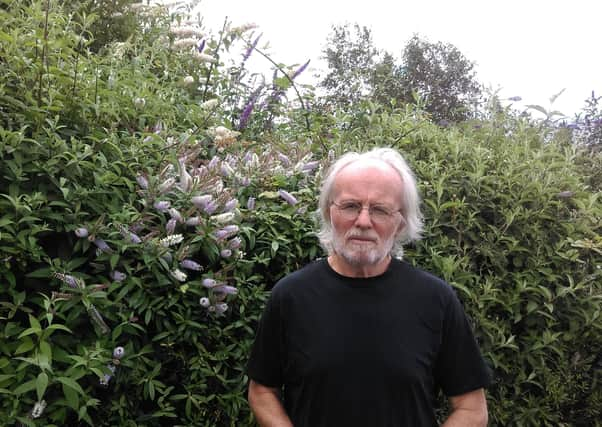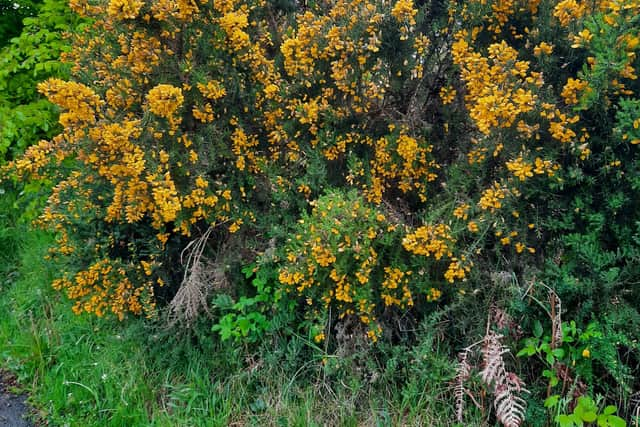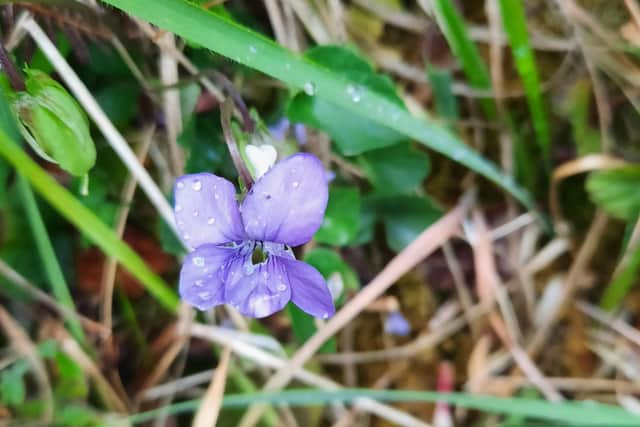Where have all the flowers gone? Who killed Cock Robin? Where’s Dopey Dick?


The most beautiful and exciting season of spring carries on with no regard for our difficulties. The good weather is encouraging many of us to exercise in the open air. Perhaps it is not the worst thing that families are spending more time together. Taking a break from home schooling, many of them are out walking. I am close to Sheriff’s Mountain where I have been walking on a regular basis. Spring is a time of successive changes. What might these families notice in the past few weeks?
This is the best time to see the flowers of late spring with their huge variety of colour. The brilliant yellow of the dandelion and the gorse bushes is very evident. Soon the most obvious colour will be the untidy whiteness of the cow parsley but there is the more delicate white of the stichwort. Red is represented by the herb robert and red campion. The tiny but beautiful violet shares it name with its colour. The vetch is a delicate purple. Identifying these flowers is made easier by reference to the internet. These colours all serve a serious purpose in that they attract insects that are required to pollinate the flowers.
Advertisement
Hide AdAdvertisement
Hide AdThe honey bees have become much more active. However, I have seen very few butterflies. People can be annoyed by strange black flies with drooping legs. These are St Mark’s flies, so called because they emerge on the feast of St Mark April 25th. They are perfectly harmless.


Many of us will be aware of the birds busy in nesting activity. In my last article I mentioned my friend Sheila and her blackbird’s nest. Three weeks have passed. The chicks are now ready to leave the nest. She has for some time been trying to tame a robin . Her husband Pat was dutifully feeding their near pet when it was snatched by a mysterious preditor. I was able to tell them that it was probably a male sparrow hawk. They specialise in dispatching unwary small birds. I tried to console them with the thought that a pair of robins can produce three clutches of six chicks per season. Next year there is the possibility of 10 pairs equalling 180 robins. By 2023 that’s almost one thousand robins. Nobody is that fond of robins or blackbirds, thrushes and all the other garden birds. In reality the young birds are decimated by predators and hunger. Cock robin’s murderer was doing Sheila a favour. As Cromwell supposedly said about his execution of King Charles, “It was a cruel necessity”. She was not impressed.
Unfortunately death and plenty of it continues to be the only topic in our news. I feel we are trapped in a ship during some great unearthly storm. As in any crisis, weak points in the vessel and its captaincy are cruelly exposed. We knew the storm was inevitable but basic repairs had been skimped. Less arrogant captains took precautions but warnings were ignored. Hatches were not battened down in time. The least thought of passengers, the old and the poor, were simply washed overboard. As leaks sprung out below decks the worst paid and least prestigious members of the crew manned the pumps. They risked their own lives in the process.
As to the captains, the Ahabs of this world, they pursued their obsession with the white whale of their own ego. Their obsessions will not help in the continuing struggle to sink or swim. If and when this crisis passes, thought will have to be given to the policies that made the virus into a disaster for so many people.
Advertisement
Hide AdAdvertisement
Hide AdSitting in the garden I was unsettled. There was the thought that enjoying the bird song did not compensate for the fact bird numbers have plummeted in recent years. The insects on which they feed have been decimated by chemicals used in agriculture. The lack of butterflies on my walks is a good example of this trend. The extra brightness of the moon was only possible because of the temporary reduction of air pollution. Two big environmental issues will still remain when this crisis is passed: global warming and the threatened extinction of so many of the living things that share the planet with us.


David Attenborough shows us near extinct gorillas, tigers and elephants in far away exotic locations. At a more local level, our personal observations reflect what more precise science reveals. Why have I not seen many butterflies? When was the last time we heard the cuckoo? Almost fifty years ago Derry enjoyed the visit of ‘Dopey Dick’ the killer whale . It has recently been discovered that he is still alive, swimming off the coast of Scotland. Since he left the Foyle he has never had to fear the harpoons of modern day Ahabs. Sadly the pod of whales to which he belongs is doomed to slow extinction. They have completely failed to breed for over twenty years almost certainly due to pollution in the sea. Ní bheidh a lethéid arís ann, (We will not see his likes again).
The children we see walking with their parents are the next generation of naturalists and environmentalists. Every opportunity needs to be taken to raise them in a love of the remaining wonders of the natural world around them. Perhaps they will be able to sort out the environmental mess we have carelessly bequeathed them.